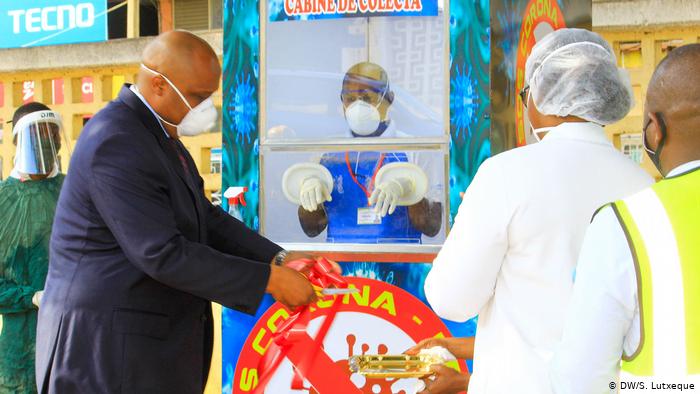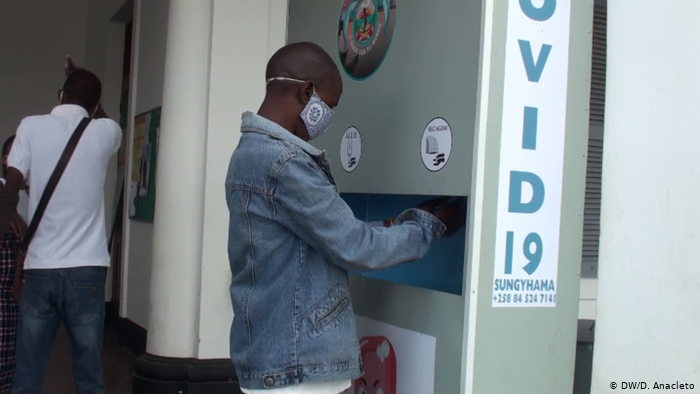Mozambique: Military solution won't solve Cabo Delgado problem - Catholic Church
Covid-19: Organisations question Mozambican government spending

FILE - For illustration purposes only. [File photo: DW]
In Mozambique, civil society points are complaining of a lack of transparency and asking the government for clarification on the 14,000 contracts awarded without public tender and the 68 billion meticais spent during the state of emergency so far.
The criticism follows President Filipe Nyusi’s report on the state of emergency, approved by the Assembly of the Republic last week.
The Budget Monitoring Forum (FMO) has already asked the Ministry of Health for additional information on the resources invested in the containment of Covid-19.
The Centre for Public Integrity (CIP) claims that more than 68 billion meticais (more than €822 million) has been spent in 14,000 contracts awarded without public tender – legally, under state of emergency regulations.
CIP researcher Aldemiro Bande told DW Africa that the report sent by President Filipe Nyusi to Parliament was approved without revealing the names of the companies hired, material purchased, or services provided.
In addition, “this type of contracting was applied throughout the public sector during this period of state of emergency”, Bande says, whereas the direct agreement applies only to the acquisition of goods and services “urgent and necessary for the prevention and combating of Covid-19”.
Where did the money go?
The Health sector accounts for 110 of the 14,000 contracts awarded by direct agreement, worth 3.32 billion meticais (€40 million). The report does not specify how many contracts have been agreed in other sectors.
Due to the lack of information about the contracts, there is no guarantee that the expenditures were made in response to the pandemic, Bande says, adding that “there is a great risk of over-invoicing when resorting to direct awards”.
The CIP researcher says that this lack of financial control is also evidenced in the absence of an amending [state] budget. “Actually, it [the amended state budget] should have already been proposed to the Assembly of the Republic for discussion. It is surprising how some expenses were made without the existence of this important instrument for transparency and public scrutiny,” he notes.

Lack of inspection
Bande is not surprised by the approval of the president’s report, which insists that the measures taken during the state of emergency respected the principle of proportionality and were limited to what was strictly necessary.
“Often, this happens because of the weakening of control and inspection mechanisms in public institutions themselves. The Assembly of the Republic should be the main body to carry out the inspection of this matter. But unfortunately, although there was a reaction on the part of some political formations, this tendency by the [parliamentary] majority was easily foreseen,” he comments.
In an addendum to the report approved by the Assembly of the Republic, the Mozambican head of state revealed that Mozambique has already received US$340.8 million (€289 million) of the US$700 million (€594 million) sought from international partners to combat the new coronavirus. The state of emergency in Mozambique remains in effect until 7 September.













Leave a Reply
Be the First to Comment!
You must be logged in to post a comment.
You must be logged in to post a comment.